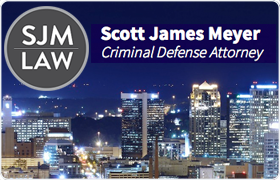Warrior White Collar Crime Lawyer, Alabama
Sponsored Law Firm
-
 x
x

Click For More Info:
-
Law Office of Scott Meyer
1211 28th Street South Birmingham, AL 35205 » view mapJefferson County Criminal Lawyer Success with Scott
Scott James Meyer provides first-class criminal defense representation in Birmingham and the State of Alabama for drug offenses and other felonies and misdemeanors.
800-697-0641  Scott Meyer Birmingham, AL
Scott Meyer Birmingham, ALAttorney At Law - Alabama, 2010
Birmingham School of Law, J.D. - 2009
 Facebook
FacebookFor Additional Information About The Law Office of Scott Meyer
 Contact UsEmail or Call 24/7
Contact UsEmail or Call 24/7Call Today For Your Initial Free Consultation.
Redding Pitt
Government Agencies, Personal Injury, Employment, White Collar Crime
Status: In Good Standing
FREE CONSULTATION
CONTACTAnthony Jerome Muhammad
White Collar Crime, Criminal, Civil Rights, Accident & Injury
Status: In Good Standing
Robert Preston Mackenzie
White Collar Crime, Personal Injury
Status: In Good Standing Licensed: 9 Years
Charles Maximillian Fleischmann
Private Schools, White Collar Crime, Corporate
Status: In Good Standing Licensed: 9 Years
Curtis Hendrix Seal
Litigation, Municipal, White Collar Crime, Insurance
Status: In Good Standing Licensed: 7 Years
John William Rose
Tax, Government, White Collar Crime, Merger & Acquisition, Corporate
Status: In Good Standing Licensed: 54 Years
Edward Jonathan Canter
Litigation, White Collar Crime, Corporate, Personal Injury
Status: In Good Standing Licensed: 10 Years


 Scott Meyer Birmingham, AL
Scott Meyer Birmingham, AL Facebook
Facebook Contact UsEmail or Call 24/7
Contact UsEmail or Call 24/7
